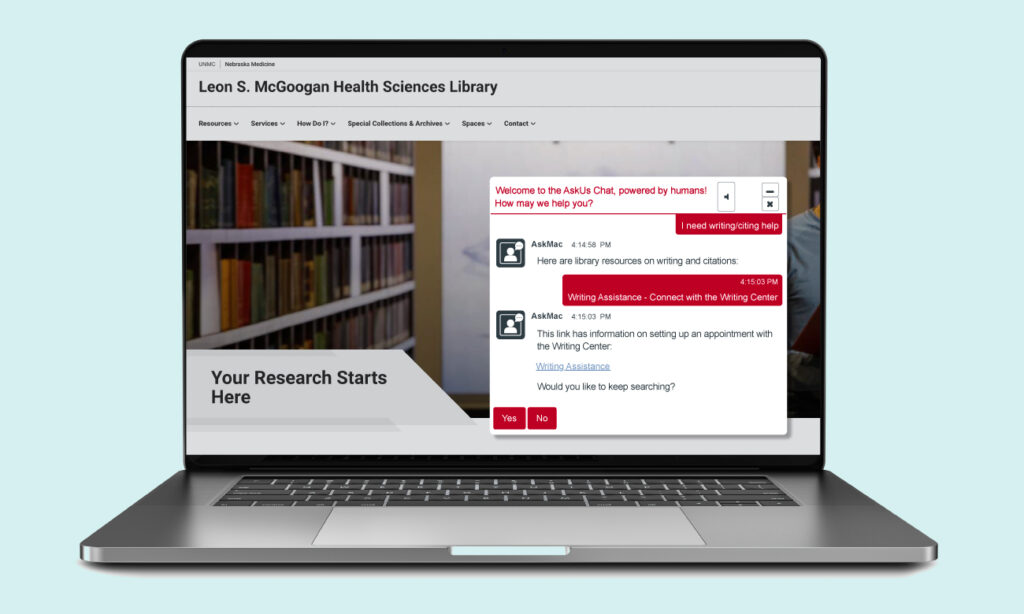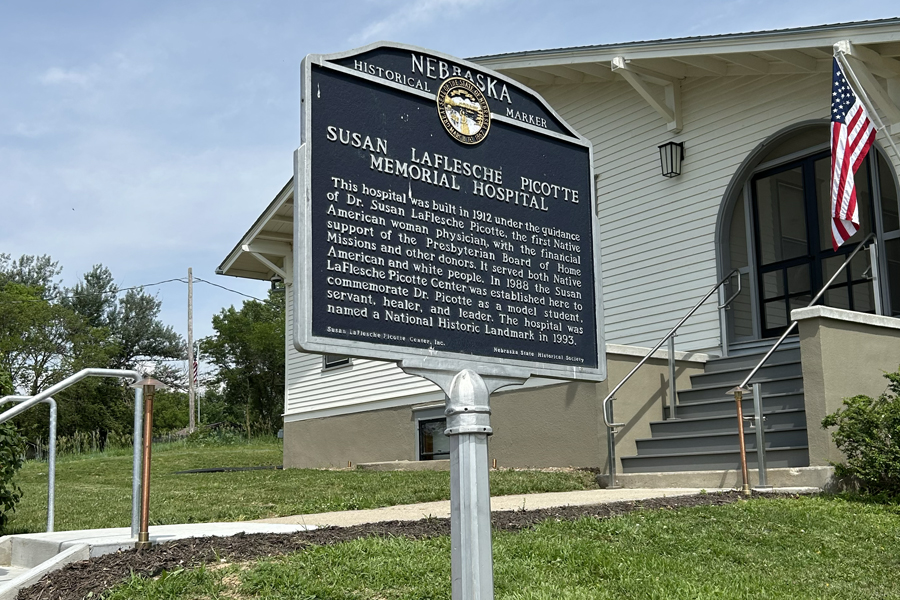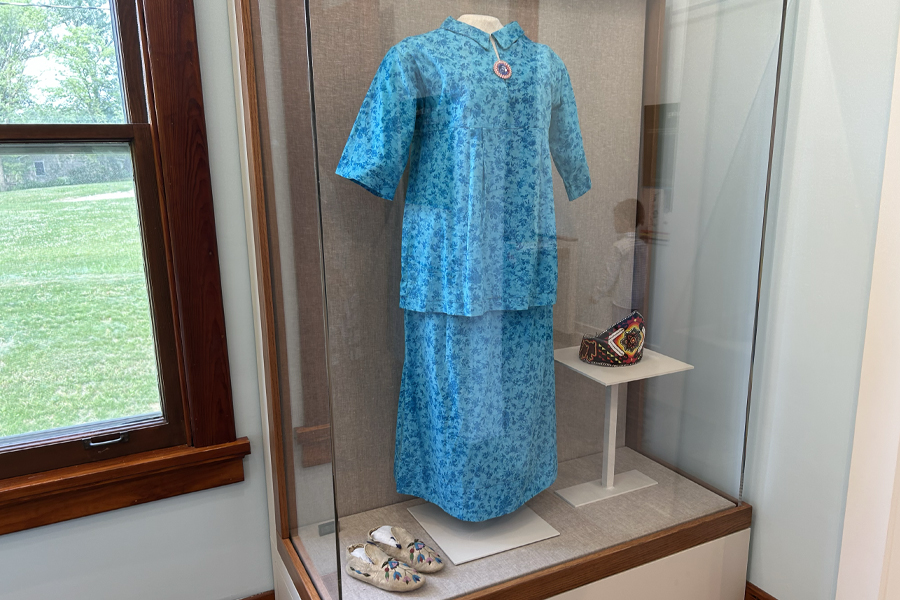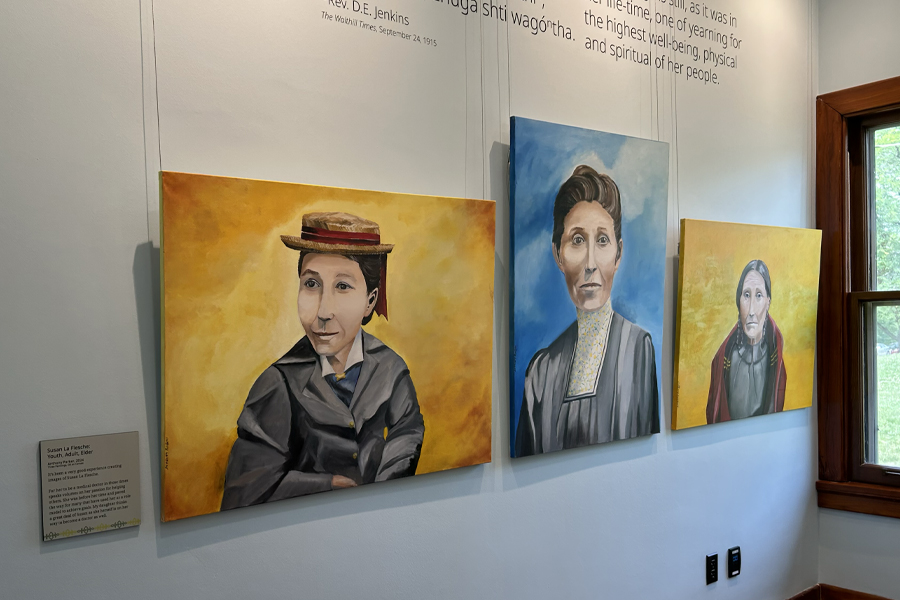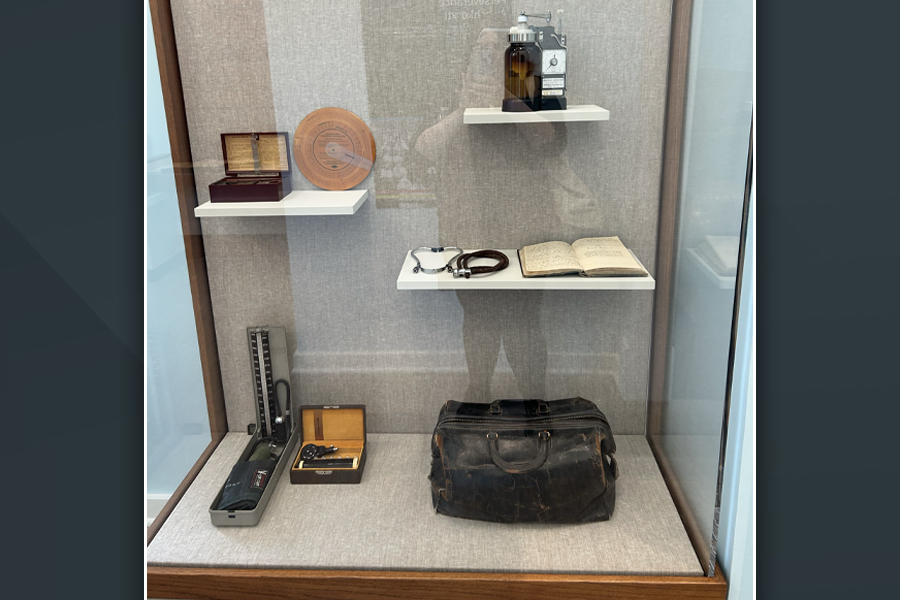Blog Author
Grace Spaulding, student worker
My name is Grace Spaulding. I am a student at the University of Nebraska Omaha (UNO) and a student worker in the Leon S. McGoogan Health Sciences Library. When I am not in the special collections and archives at UNMC, I am a curator for Experiences in Femininity (EIF). This is an annual, student run exhibition that has been taking place at UNO since 2023. This UNO FUSE grant awarded exhibit aims to feature artwork regarding feminine identity and appreciation. We highlight art that exemplifies and celebrates the personal views, experiences, and appreciation of femininity and womanhood. Our desired scope of works for this exhibition features pieces by UNO students, staff, and alumni, all of whom are eligible to submit work for display consideration, regardless of gender identity. The project features an arts exhibition and a publication consisting of creative writing, scholarly works, and imagery of the works featured in the exhibit. Another key aspect of EIF is the accompanying lecture series. UNMC’s own Dr. Catherine Medici-Thiemann was featured as the final speaker in this lecture series, delivering a lecture titled “Feminism in Popular Culture: Finding the F-Word Everywhere”
Due to the exponential growth of Experiences in Femininity, we have been able to secure space in the Ming Toy Gallery, located in Omaha, Nebraska, for the 2026 exhibition. This space will allow us to expand our reach further into the Omaha community, as well as showcase the talents of the University of Nebraska Omaha students, staff, faculty, and alumni in a new manner, for the metro community. This collaboration between university and community is one that is reflective of UNO’s own sentiment, that the city is our campus. By involving the Omaha arts community, this program has the potential to become a highlight not only for UNO but also for representations of femininity throughout the city. It is our hope that by expanding in this manner, EIF will cultivate a sense of belonging for artists, writers, and viewers, influencing the beginning of important conversations, advocacy, and involvement regarding our mission and subject matter.
Involvement Overview
I joined the EIF team in September of 2024 and was honored to be able to have a role in the development of the 2025 exhibition, as well as the planning for the 2026 exhibition. The orchestration of the project is not a singular experience, but was a team effort between myself, Toni Parker, Julia Mulloy, and the projects founder, Kennedy Wallman. The team worked to facilitate communications, make decisions, coordinate events, and create materials for the exhibition.
McGoogan Library’s Influence
My time at the Leon S. McGoogan Health Sciences Library greatly prepared me for this role, as I gained skills regarding collections management, working in an archive, how to work with exhibits, and creation of academic writing. One of my personal goals for the program is to cultivate a sense of longevity, as I want EIF to continue long after completing my undergraduate degree. Having established a background in special collections and archives allowed me to be better equipped to create programming and develop an exhibition that can be passed on through students, ensuring long-term accessibility. A consistent change in leadership while maintaining the mission and goals for Experiences in Femininity is necessary for the success of this project. In my role in the special collections and archives, I have learned how to preserve processes, maintain consistency, prioritize a consistent workflow, all of which played a role in my involvement with the continued development of EIF. Whether it be through the writing of exhibition proposals or installation of artwork, the knowledge that I have gained through my work at the library has increased my ability and confidence exponentially.
A specific example of this position’s influence on my understanding is the process of cataloging. My previous involvement working with artifacts and archival materials, recording information and inputting it into a collection management system made me equipped to create a thorough submission form, ingest all submitted works, and input them into an organized display for the jury selection process. Because of the information provided with submissions, I was then able to quickly and efficiently assist in notifying the selected artists of their admissions into the exhibition.
Another instance of my experience with the library coming into play in my exhibition process is the dynamic of teamwork and coordination that is required to execute a project of this nature. I have been incredibly fortunate to be involved with a wide variety of projects supervised by many of my wonderful coworkers in the library and because of this have deepened my understanding of how to work well with others while being efficient and providing quality results. This has translated excellently into my time with Experiences in Femininity, as there are four of us who are responsible for the execution of the exhibit from start to finish. Each member of the team has their own area of operations, blending to create the exhibit and programming for the current year, while planning for the future in tandem.
My work at UNMC in the library without a doubt prepared me to play a role in this exhibition. The knowledge and experience I have gained from this position has allowed me to be an involved team member, forward planner, and intentional curator. I have no doubt that the lessons and skills I have gained from the special collections and archives will continue to assist me in my career and education going forward.

